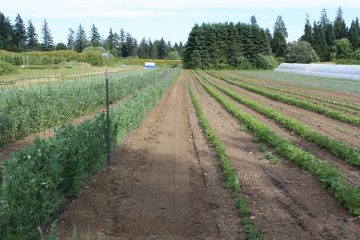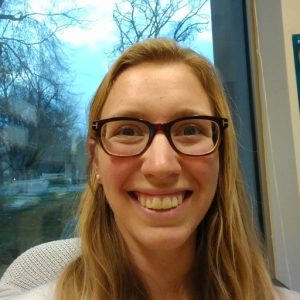Cluster Hire in LFS Applied Biology, Sustainable Agriculture and the Environment, and CSFS at UBC Farm
Research Seminar:
Strategic Design of Diversified Cropping Systems to Increase Multifunctionality and Improve Grower Livelihoods
Dr. Nicole Tautges
Cropping Systems Research Lead
Agricultural Sustainability Institute
University of California, Davis
Click here to fill out the Feedback Form for Dr. Nicole Tautges’ campus visit

Increased consolidation of the agricultural industry has contributed to losses of biodiversity, over-reliance on chemical inputs, and declining crop returns for farm families. The restoration of integrated cropping systems that incorporate perennial and annual, summer and winter, and grain and livestock production types has the potential to restore agroecosystem health. However, diversification must be carried out strategically to preserve grower incomes and the economic sustainability of the farm. My research to date has addressed strategies for cropping system diversification and quantified the benefits of these practices, which include 1) crop rotational diversification for increased weed competition, 2) intercropping for enhanced grain quality, 3) alternative/new crops, and 4) crop-livestock integration with graziers. I propose to build on this work at UBC by investigating cover cropping and grazier incorporation into berry systems, increased use of alfalfa in rotation, and enhanced management of soil biology, via participatory research projects with BC farmers.
When and Where?
- May 23, 2019 from 11:00 a.m. to 12:30 p.m.
- MacMilllan Building, Room 158
About the Presenter

Dr. Nicole Tautges, UC Davis
Dr. Nicole Tautges grew up in southern Wisconsin and consequently loves dairy systems and forages. She double-majored in Agronomy and Spanish at the University of Wisconsin-Madison and completed her PhD in Crop Science at Washington State University, where she investigated weed and soil fertility management in dryland organic wheat systems. Nicole has conducted on-the-ground research in small grains, corn, beans, forage, processing tomato, and grazing systems, as well as working with Kernza, a new perennial grain crop. Her research focuses on increasing the diversity of crop rotations and landscape cover in agricultural systems using a variety of techniques, including the incorporation of legumes, organic soil amendments (e.g., compost), and grazing into row crop rotations. Current projects include quantification of soil health indicators following repeated compost application, grazing winter cover crops to increase economic feasibility, investigating biochemical drivers of the rotation effect of alfalfa, and a participatory soil health survey of California tomato farms.
This seminar is part of the LFS Applied Biology Faculty Cluster Hire in Sustainable Agriculture and the Environment. Nine short-listed candidates will be giving seminars in May and June as part of their intensive interview process.